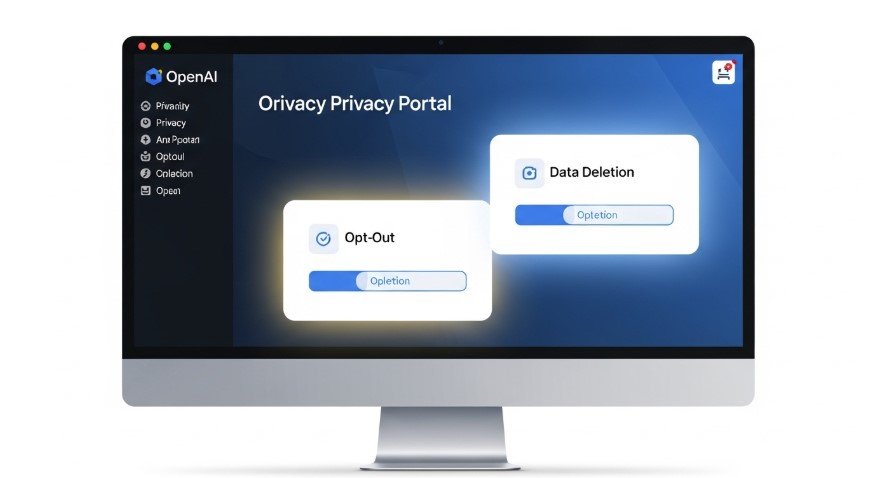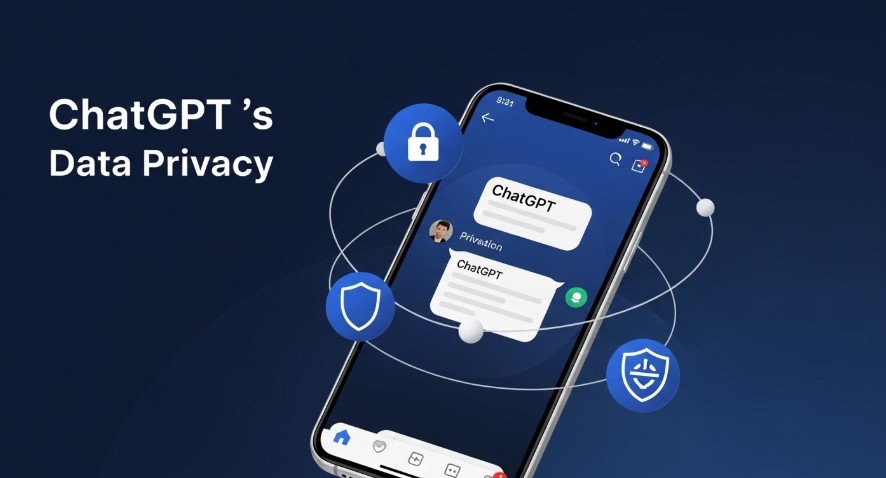ChatGPT, built by OpenAI, helps millions with tasks and questions. But many wonder: Does ChatGPT store your questions? This article explains ChatGPT’s data storage, how it uses your information, and ways to stay safe. All facts are current as of July 24, 2025, based on OpenAI’s latest privacy policy and trusted sources.
How ChatGPT Handles Your Data
ChatGPT uses natural language processing to answer your questions. To work, it collects and stores data. According to OpenAI’s privacy policy (updated June 27, 2025), here’s what it gathers:
- User Input: Questions, prompts, responses, and uploaded files like documents or images.
- Metadata: Timestamps, device details (e.g., phone or browser type), IP addresses, and approximate location.
This data is stored on OpenAI’s servers to improve the AI and ensure safety. For more, check OpenAI’s Privacy Policy.

Why Does ChatGPT Store Data?
OpenAI uses your data for specific reasons:
- AI Improvement: Your questions help train ChatGPT to give better answers.
- Safety Monitoring: Data is checked to prevent misuse, like harmful content.
- Service Functionality: Metadata ensures the platform runs smoothly.
OpenAI says it doesn’t sell data or use it for ads. But a 2023 data breach raised concerns when user details, like names and partial credit card info, were exposed.
Can You Control Your Data?
Yes, OpenAI offers ways to manage your data:
- Opt Out of Training: Visit the privacy portal to stop your chats from being used for AI training. See OpenAI’s Data Controls FAQ.
- Delete Chats: Remove specific conversations or your entire account. Some data may stay temporarily for abuse checks.
- Temporary Chats: Use temporary chats to avoid saving your history.
These options give you control, but complete data removal may take time due to legal needs.
Privacy Risks to Know
While OpenAI protects data, risks remain:
- Data Breaches: The 2023 leak showed vulnerabilities, exposing user info like emails and addresses.
- Legal Access: OpenAI may share data with law enforcement if required, as noted in a June 2025 court order.
- Third-Party Sharing: Data may go to affiliates or partners for service needs, raising concerns in places like the EU with strict privacy laws.
These risks mean you should be careful about what you share.
How to Use ChatGPT Safely
Follow these tips to protect your privacy:
- Don’t share personal details like addresses or financial info.
- Use temporary chats for sensitive questions.
- Opt out of data training in the privacy portal.
- Delete old chats regularly to reduce stored data.
These steps help you use ChatGPT with less worry.
Related Articles:
- Does ChatGPT Track You? Privacy Risks
- How to Humanize ChatGPT Content
- Where Are ChatGPT Servers Located?
Frequently Asked Questions
Does ChatGPT save my questions?
Yes, it saves questions and responses unless you use temporary chats or delete them.
Can I delete my data?
Yes, through the privacy portal, but some data may stay for compliance.
Is my data shared?
Not for ads, but it may go to affiliates or law enforcement if legally required.
How long is data stored?
Indefinitely, unless deleted. Some data lingers briefly after deletion.
Can I use ChatGPT anonymously?
Using it without an account helps, but metadata like IP addresses is still collected.
Conclusion
ChatGPT stores your questions to improve its AI and ensure safety, as outlined in OpenAI’s June 2025 privacy policy. You can opt out of training, delete data, or use temporary chats to stay safer. But risks like breaches and legal access exist. By following best practices, you can use ChatGPT confidently while keeping your privacy first.
